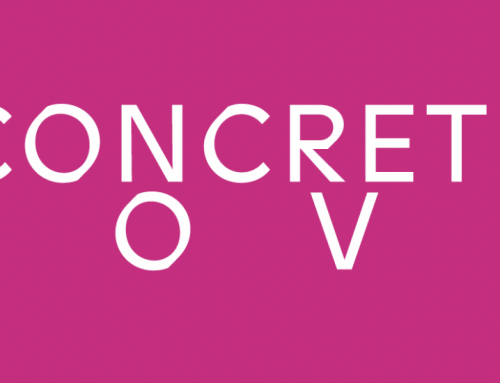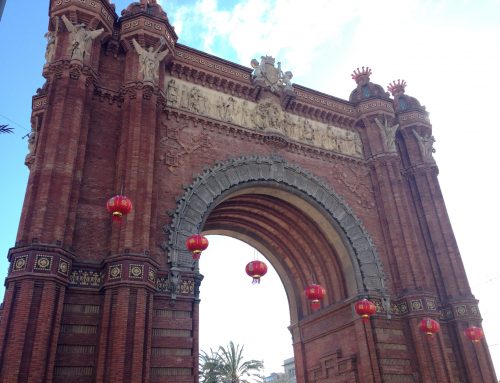In November, I was honored to be invited by Professor Isaura Mourão from the Federal University of Viçosa, Brazil, to give an online lecture followed by a roundtable discussion on “The Future of Work: Challenges and Opportunities.” This event was specifically aimed at students from the Communication/Journalism graduation course as part of the subject, “Extension Project – Laboratory Periodical.” Additionally, students from other courses, such as “Organizational Communication” and “Marketing in Digital Contexts,” also participated, further enriching the experience.
This invitation provided a valuable opportunity to reflect on a highly relevant topic. Throughout the event, we delved into how transformations in the world of work affect not only future professionals of Generation Alpha but also the broader Generation T, which, importantly, includes us all.
The Evolution of Work Across Generations
To enrich the discussion, I structured my talk around the theme “The Future of Work: Challenges and Opportunities,” with a special emphasis on the impact of artificial intelligence (AI). To set the stage, I began by presenting an overview of the evolution of work through different generations. This contextual approach allowed us to better understand the present while envisioning potential future scenarios:
- Baby Boomers (1946-1964): This generation prioritized stability, loyalty to companies, and adhered to rigid hierarchical structures.
- Generation X (1965-1980): With this generation, we saw the introduction of workplace flexibility and the early effects of globalization, along with the emergence of initial digital technologies.
- Generation Y/Millennials (1981-1996): The focus shifted to achieving a work-life balance, with widespread adoption of remote work and digital tools.
- Generation Z/Centennials (1997-2012): This generation values flexibility and social impact while demonstrating great adaptability to emerging technological tools.
- Generation Alpha (2013 onwards): Having grown up in a digital environment, these individuals exhibit early exposure to AI and hold expectations of personalized work experiences.
- Generation T (current): Often referred to as the Transition Generation, as coined by Amy Webb in her SXSW talk earlier this year, this concept encourages us to view humanity as a single generation united by profound technological transformations, rather than maintaining divides between Generations X, Y, Z, and Alpha.

The Future of Work and AI’s Role
Work relationships are currently undergoing profound transformations, primarily driven by digitalization and the widespread adoption of remote work. Consequently, hybrid models have become increasingly common, offering flexibility while simultaneously demanding significant cultural and communication shifts within organizations.
Within this shifting landscape, artificial intelligence emerges as a pivotal force. AI is not only redefining tasks but also replacing traditional roles and opening new opportunities. Tools such as ChatGPT and MidJourney, for example, enable faster and more efficient workflows. However, this rapid evolution comes with its own set of challenges, such as the fear of job displacement. Therefore, it is crucial for professionals to develop essential skills like critical thinking, deep analysis, and the ability to use these technologies both ethically and strategically.

Emerging Trends and the Future of Work
As we navigate these changes, the labor market is being shaped by several key trends, which include:
- AI: Transforming the nature of work through advanced tools and automation.
- Gig Economy: The rise of freelance and temporary work facilitated by platforms like Upwork, Fiverr, and Workana.
- Continuous Reskilling: With technological advancements accelerating, the need to acquire new skills is more critical than ever. Programs such as Lifelong Learning and AI courses from institutions like Senai in Brazil and Barcelona Activa/Cibernarium in Spain are excellent resources.
- Decentralized Remote Work: Increasingly, professionals are relocating from major urban centers to smaller cities while continuing to collaborate virtually with global companies.
- Diversity, Equity, and Inclusion (DEI): The positive impact of diverse teams on innovation is now widely recognized.
- Sustainability and Corporate Social Responsibility (CSR): Companies that align with environmental and social values are increasingly attracting talent and customers alike.
Challenges of AI in the Future of Work
Nevertheless, AI faces significant challenges. For instance, accountability gaps and inherent biases in large-scale models remain pressing concerns. Looking ahead, advancements such as Large Action Models (LAMs) will enable AI to interpret human intentions based on behavioral, emotional, and everyday action data. Furthermore, these advancements, when combined with interconnected devices like the Apple Vision Pro, will create an ecosystem where sensors can detect movements before users are even aware of them.
In addition, Organoid Intelligence (OI)—a burgeoning field that merges biological data with AI systems—promises the development of faster, more efficient, and highly personalized biological computers. This hyperconnected future underscores the need for ethical and strategic preparation.
Opportunities in the AI-Driven Future of Work
Given this dynamic context, mapping value networks, identifying the most impacted sectors, and developing inclusive transition plans become essential. Emerging opportunities include:
- AI Ethics and Auditing: The growing need for specialists in tech ethics and responsible algorithm design.
- Cybersecurity and Data Analysis: Professionals capable of managing and protecting vast amounts of behavioral data.
- Biotech Engineering: The integration of AI with biological principles for the development of innovative materials and hybrid systems.
- AI-Based Recruitment and Management: Data-driven insights will revolutionize HR processes, making them more efficient and effective.
- Mental Health and Wellness Programs: As work evolves, maintaining a healthy and productive workforce becomes a top priority.
Additionally, interpersonal skills such as emotional intelligence and adaptability are becoming increasingly valuable in today’s ever-changing job market.
AI in Education
The education sector is also embracing AI to empower professionals and foster innovation. A remarkable example comes from Colégio Montserrat in Barcelona, where teachers use platforms like Copilot to teach students both writing and prompt creation simultaneously. For instance, a child writes a description of their face, the teacher refines it, and then uses it as a prompt to generate a digital image of the child. This process allows students to learn writing and AI skills at the same time.

Similarly, in math classes for teenagers, Cubist art is integrated to teach mathematical concepts using AI. Teacher Olga Casaban, also from Colégio Montserrat, combines the work of artist Sonia Delaunay with math exercises such as calculating PI. These inspiring examples, shared in a webinar by Founderz, highlight the limitless possibilities that depend on each professional’s creativity and responsible use of technology.
Cautious Optimism
Finally, it was deeply gratifying to hear the students’ questions during the lecture “The Future of Work: Challenges and Opportunities.” Contributing to their understanding from my perspective as a Communicator and Sociologist felt meaningful. While the future of work indeed presents challenges, it also offers countless opportunities for those ready to learn, adapt, and align their choices with their values and purpose. Ultimately, it is essential to embrace optimism—albeit a cautious one.
Here’s a video that briefly summarizes my lecture. If you’d like to watch the full lecture, which includes an engaging discussion with the students, click here. I’m also sharing my with my participation certificate from the Federal University of Viçosa, Brazil. My sincere thanks to Isaura for the invitation and to all the students who attended and engaged in the conversation.








Leave A Comment